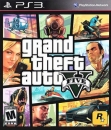TruckOSaurus said:
Why do you have to be so condescending? You make valid points but you discredit yourself by putting down people who don't think like you. Please argue respectfully. ----------------------- As for your point, Street Fighter IV did add moves and rebalancing as it went through its new versions but the core gameplay was still the same, the graphics stayed the same, character models, animations but all of that has changed in Smash Ultimate which is why I don't think you can compare those situations 1 to 1. Also, I think if we try to define a rule for what is a port and what is not that applies to ALL games that's never going to happen. Street Fighter changes a lot between numbered series but the Smash series plays relatively the same since Melee. So on the scale of what usually separates new Smash games, Smash Ultimate is as much as new game as Brawl and 4 were. |
I apologize if i came off condescending, but i get upset when people arbitrarily try to redefine things when they don't define only what it is supposed to define. Saying it's a new game is fine, but you have to extend that all the way backwards to categories the previous games, and it just doesn't stick.
So, at the basis there's two currents you can choose. One simply says: A sequel is when a publisher/developer says it is. This is obviously a branding/marketing ploy and doesn't necessarily correspond to the reality. In fact it can be the base game with added content and they just decided to number it for better sales.
So, it's fair enough to go with that first definition, but you can no longer categorize anything. It's what the publishers say and that's that. In a way this is the point of view you are defending when you say there's no precise categorization and that's fair enough.
But, if you want to look past the publisher definitions/marketing into a more realistic categorization we got these definitions:
- A port/enhanced port/remaster > The act of making a game playable on a different system, with graphical upgrades, downgrades or neither. It may add content as well. (think Tales of Vesperia: definitive edition)
- A new version > The same game with small graphical improvements or not that maintains the base game content but adds to it in a single package. (think Ultra Street Fighter 4)
- A stand alone expansion > A completely new game using the assets/mechanics of the base game. Can also expand mechanics. It may require the base game. (think Fallout New vegas)
- A sequel > A new game in a franchise remade from the ground up. (think Dead or Alive 6)
If we use those definitions, Smash ultimate is: an enhanced port and/or a new version. It can under no way be considered a sequel.
If you want to categorize it as a sequel under these conditions, then you break the other definitions. A sequel becomes everything, because you invalidate the definitions of port and new version. Wich in turn makes things like the upcoming Tales of Vesperia: definitive edition a sequel, for example. It has improved graphics, it has new content, it has new characters and i assume new mechanics as well due to the new characters. The same can be said of Ultra Street Fighter 4. Think of the omega mode, think of the red focus and all the balance changes, new characters, new stages, new content.
It simply does not work. We can't call every port a sequel or every new version a sequel.
The other poster i was debating with said that the amount of content makes it a sequel, to wich point i didn't reply anymore because that is a completely arbitrary distinction, again. What amount of content makes it upgrade from port/version to sequel? It's not very well quantifiable.
My problem is not that people want to call it a sequel, it's that if they do, they must come up with a definition that doesn't categorize all ports and versions as sequels as well. A debate on opinions just cause people feel like it, is not something i find rational and thus why i was stern about it. Just add the disclaimer that this is what you personally think, not assert it with no concern of the escalation in the classification.
Last edited by Nem - on 14 June 2018






















































